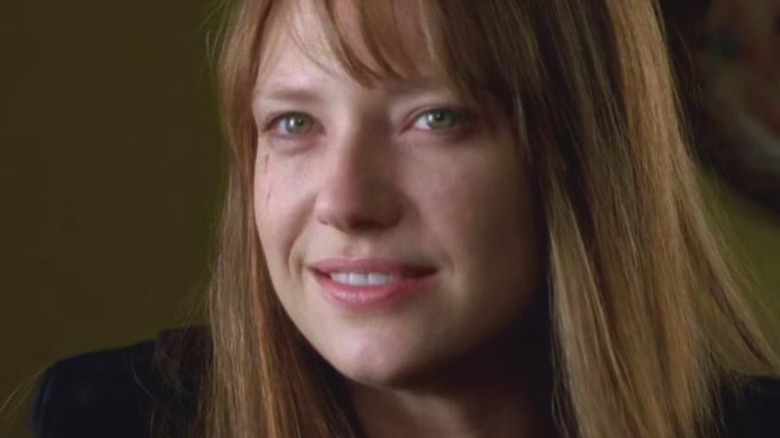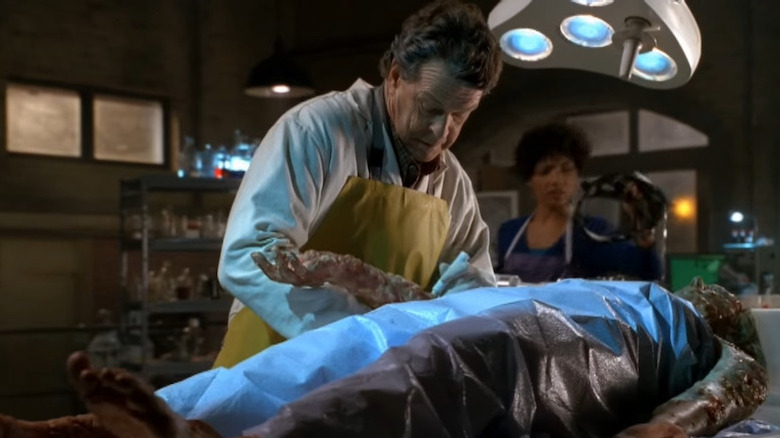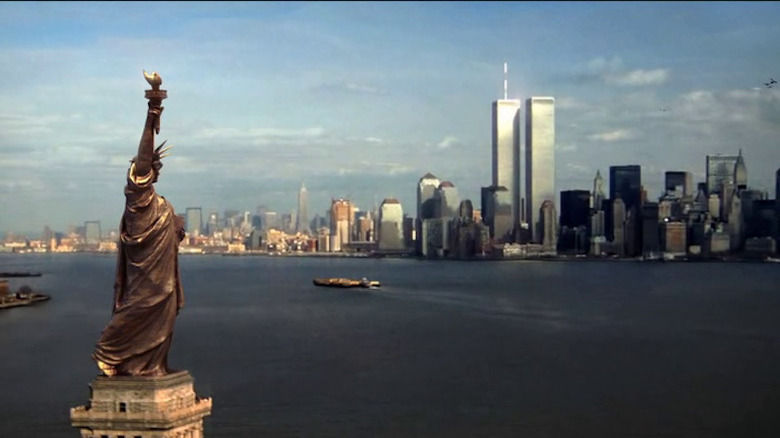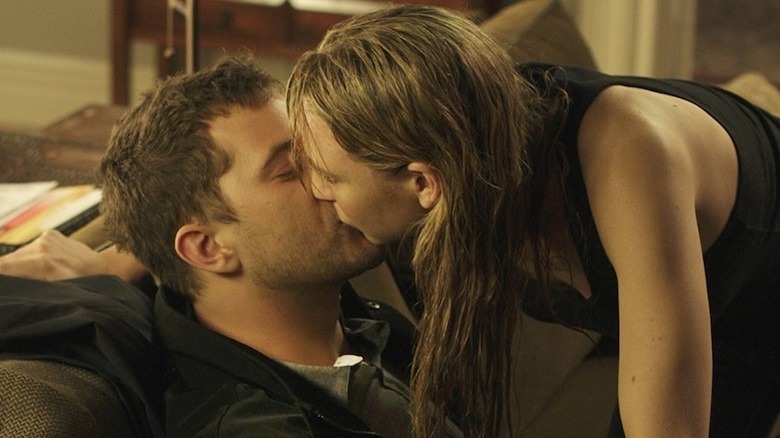Network TV Hasn't Been The Same Since This Sci-Fi Drama Left The Air
Science fiction has nearly always had a home on the small screen, as the likes of "The Twilight Zone" and "Doctor Who" have thrilled audiences at home since the late 1950s and early 1960s. However, while network TV has delivered genre-defining shows over the years, it's safe to say that the genre mainly lives on streaming services now — thanks to the larger budgets offered by Apple TV+, Netflix, Paramount+, Amazon Prime, and Disney+. Franchises like "Star Trek" and "Star Wars" have expanded on the small screen thanks to their new streaming homes, while Netflix and Amazon Prime have welcomed writers and creatives to deliver easily binge-able stories.
That said, it's important to remember that network TV was responsible for some of the most influential sci-fi storylines in pop culture history. Just look at J.J. Abrams' "Lost," which gripped audiences across the world with its wild array of mysteries and plot twists over six seasons on ABC. The show led to a number of middling sci-fi thrillers like "Alcatraz," "Revolution," and "Flashforward." Perhaps the best show to follow in the wake of "Lost," though, was another one spearheaded by Abrams, and that's the underrated 2008 program "Fringe."
The Fox series follows Olivia Dunham (Anna Torv) who joins the FBI's Fringe Division after investigating a plane that lands full of dead passengers whose skin has crystallized. From there, she and her team look into bizarre cases involving transhumanist experiments gone wrong, a doomsday cult, and giant parasitic worms smuggled inside illegal immigrants, to name a few. And rewatching "Fringe" today, it becomes clear that this dose of weirdness is exactly what's been missing from network TV ever since "Fringe" ended in 2013.
Fringe's mystery of the week rivals The X-Files
When it comes to sci-fi procedural dramas, the high bar is obviously Chris Carter's TV-redefining "The X-Files," and "Fringe" has an undeniably similar premise. But thankfully, the series doesn't shy away from that — it revels in it. The series approaches the "monster of the week" format with a modern lens that doesn't feel outdated — it knows its limits, and it never tries to go bigger than its initial idea. While Fox Mulder (David Duchovny) and Dana Scully (Gillian Anderson) investigate aliens, mad scientists, and the supernatural in "The X-Files," "Fringe" sticks to experimental science.
It's a perfect sandbox for audiences to play in because most of the episodes all dive into some fascinating directions — many of which could easily sustain a full season-long story of their own. The first season alone includes episodes about a scientist encasing people in amber, a man who transforms into a porcupine monster on a plane, a viral video that liquifies the viewer's brain, and a bank robber who gets stuck in the middle of a wall inside a vault. These ideas only get wilder, scarier, and gorier in later seasons, and it's surprising how much Fox let the series get away with.
Frankly, most shows on network TV don't have the guts to try bold things like "Fringe" did, because streaming is the place for risky storytelling — just look at everything "The Boys" gets away with! But as rich as these singular mysteries are, they quickly build to a huge storyline that feels incredibly grand for TV, and it works because the writers seed it from the very beginning.
The alternate universe is a mind-blowing concept
Although the likes of Marvel and DC are trying their hand at bringing the multiverse onto the big and small screens, "Fringe" prepares the audience for a trip into an alternate universe from the very beginning. The writers set the stage for the other world because of all the wild scientific concepts, Olivia's latent telekinetic abilities, and the cult obsessed with opening a gateway over to the other sides.
Rewatching the series, it becomes clear that the plan was always to build up to the other universe thanks to smaller moments – like Peter Bishop (Joshua Jackson) remembering the "G.I. Joe" figure had the scar on the other side of its face — which is a nod to the fact that he was actually kidnapped from the alternate reality by our Walter Bishop (John Noble).
The cliffhanger at the end of Season 1 even sees Olivia get transported to the other side to speak with William Bell (Leonard Nimoy) regarding the truth about Massive Dynamic and reality itself. From there, the writers only escalate things — even swapping Olivia with her doppelganger, dubbed Fauxlivia. But all these things make it incredibly satisfying when the show actually visits the second universe where they still use blimps, 9/11 never happened, and the general public is allowed to travel to the moon (which all sounds great, but on the flip side, there's also a huge coffee shortage, the environment is heavily damaged, and unstable wormholes keep opening up). It's a fascinating place to explore, that always feels like a treat, and it isn't cheapened by drawing it out for too long. Yes, the "Fringe" writers probably could've come up with 10 seasons, but five feels concise enough for the story they wanted to tell without outstaying its welcome like other Abrams-produced shows. Yes, "Lost," we're looking at you.
Anna Torv and Joshua Jackson
The biggest reason why "Fringe" left such a high bar is the incredibly well-written characters, who are played by a hugely talented cast. The bond between Olivia, Peter, Walter, and Astrid (Jasika Nicole) is so strong because of the horrors they face on a daily basis, and it isn't surprising that they're a dysfunctional family by the time Season 5 comes to a close. But the emotional crux of the show comes from Olivia's journey into the unknown and the secrets that are unearthed about her past because of her investigations.
She's essentially asking the question, "Who am I?" for the entire series, because of the mysteries that overlap into her own life. These quandaries involve discovering the truth about her Cortexiphan-induced powers, whether she's her own person in the face of an alternate universe, and whether she can ever feel comfortable enough to start a relationship with Peter. Anna Torv's unflinching performance is nothing short of excellent (although "Mindhunter" fans won't be surprised!), and when Olivia finally gets to be with her family by the end of the series, it's so heartwarming to see her happy and fulfilled.
Torv's performance is only enhanced by her dynamic with Joshua Jackson as Peter because their relationship never feels forced — it naturally grows over the course of two seasons. But just like the idea of the alternate universe, it's incredibly rewarding for the audience to finally see them together after struggling with an evil doppelganger, plot twists about their respective histories, and saving the world from the Observers.
"Fringe" knows what audiences expect from a sci-fi drama — it bravely explores its own mythology and characters with a unique edge that makes it a true treat to watch.



